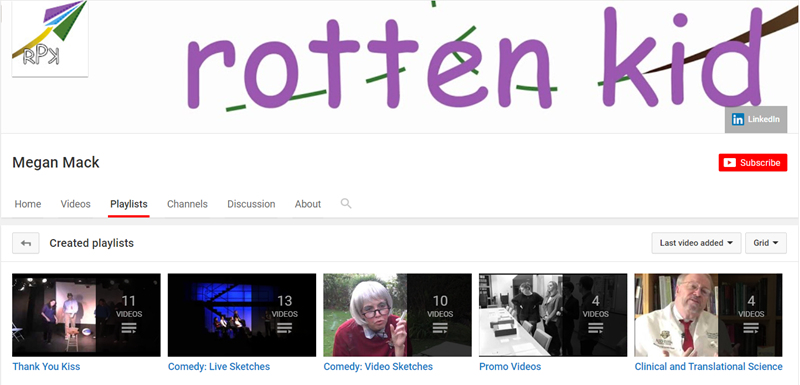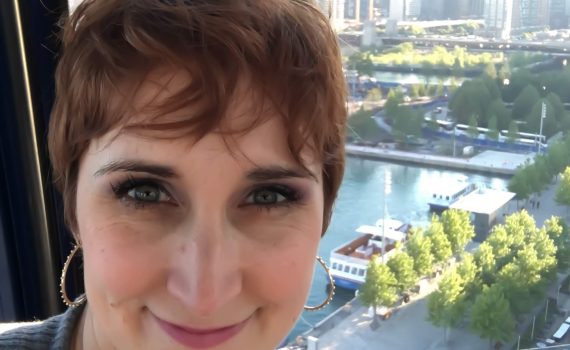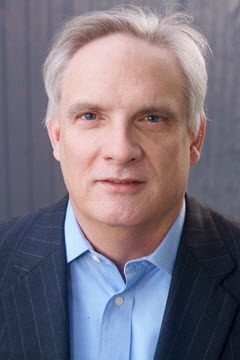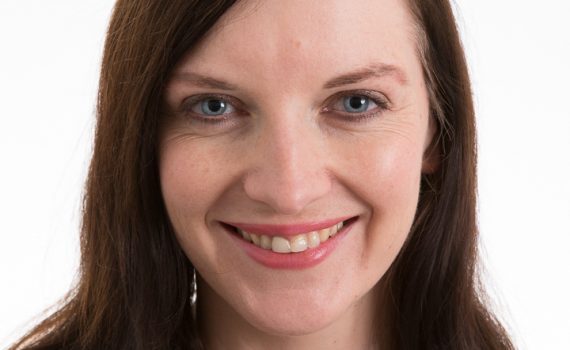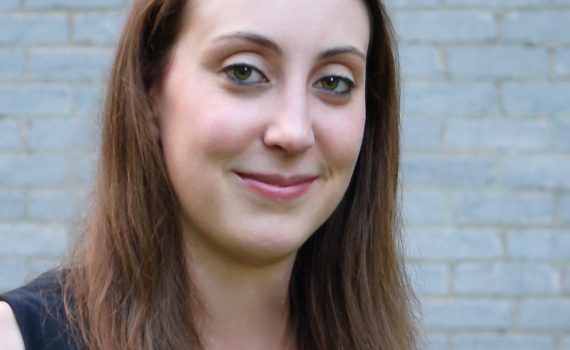
Episode 027: Megan Mack–Empathy and Meaningful Discourse
Category:introversion,Introverted Leadership,introverts,personality,PodcastPodcast: Play in new window | Download
Subscribe: Spotify | Amazon Music | iHeartRadio | Podchaser | TuneIn | Deezer | RSS
Episode 027 Show Notes: Megan Mack
Introduction
Megan Mack and Ben Woelk talk about empathy, meaningful discourse and countering hate speech, not being the loudest voice in the room, and trusting your instincts.

Key concepts
- Producing a WXXI radio program
- Advantages of not being the loudest voice in the room
- Turned your internal monologue off and stopping judging yourself
- Countering hate speech with more speech
- Introverts and group work
- Active listening
- Work hard, try to be as confident as you can, and trust your instincts.
Quotable
There’s a tendency in today’s society to quickly judge. Empathy helps me step back sometimes and say, “You know, why do I think this person is acting this way?
It’s such a polarized society right now and a lot of what I would describe as very strident voices and not necessarily well reasoned. So empathy is a great gift.
Some people argue counter hate speech with more speech and I tend to agree with that. So, we can just keep talking.
I am not the loudest voice in the room. And I think sometimes that comes in really handy because I can just sit back, take in everything else and then move forward where I need to.
Running the show alone has given me the confidence to know that I can trust my decisions, and I can be on air, I can be behind the scenes, I can engineer anything they throw at me. If I work hard enough, I can do it.
I think the skills that I’ve applied in the producer area have also found their way into Improv. Work hard, try to be as confident as you can, and trust your instincts.
Resources or Products Mentioned in this Episode
- WXXI
- Connections with Evan Dawson
- Second City Training Centre
- Rochester Brainery
- Writers & Books Literary Center
- Focus Theatre
- Sebastian Junger, Tribe: On Homecoming and Belonging
Links
- Follow Hope for the Introvert on Twitter
- Like my page on Facebook
- Support me on Patreon
- Get swag for Hope for the Introvert and Introverted Leadership at Zazzle
Transcript
Ben: Joining us today is Megan Mack. Megan Mack is an improviser, sketch comedy writer, and television and radio producer based in Rochester. She is a graduate of the Conservatory and Writing programs at The Second City Training Centre in Toronto, and has studied with Jimmy Carrane, Armando Diaz, Susan Messing, and T.J. Jagodowski and David Pasquesi. Megan performs with the sketch comedy and improvisation troupe, “Thank You Kiss,” and coaches improv and sketch comedy at the Rochester Brainery, Writers & Books, the Focus Theatre, and more. When she’s not on stage, Megan produces “Connections with Evan Dawson,” the daily afternoon radio talk show at Rochester’s NPR station, WXXI. She has also produced television segments for WHEC-TV, NBC Olympics, NBC Entertainment, and Seeten TV in Florence, Italy. I first met Megan at one of her improvisation classes at the Rochester Brainery. Since then, she’s conducted improvisation workshops for me for the STC Rochester Spectrum Conference and my Introverts and Leadership class at RIT. You can contact Megan at mac.megan01@gmail.com.
Ben: Hi Megan.
Megan: Hi. Thanks for having me, Ben.
Ben: Welcome to the Hope for the Introvert podcast. I’m looking forward to our conversation.
Megan: Likewise. Thank you.
Ben: So can you tell us a little bit about your role at WXXI and what the workplace is like?
Megan: I produce Connections with Evan Dawson, as you mentioned, it’s our daily talk show. We do two hours every day, so that’s 10 hours a week. It works out to about 500 hours a year of live radio, which is a lot. [laughing] You’re booking all of those guests and all of that time and researching all those topics. But it keeps me on my toes and it’s a wonderful job. It’s the best job I’ve ever had. Since we’re an NPR station, we have a listenership that’s really respectful and educated and engaged with our content. So that’s really fun for me. On the production side, to hear from listeners every day; to talk to people in the community about what matters to them, the types of shows that they want to hear, what they want to learn, and the types of guests that they can offer us.
Megan: So that’s really great. Our building here, we have a lot of people that work at WXXI. I’m in the radio department and we have a very close knit family here. I share an office with two or three other people depending on the day. It’s a big space, but we all work on similar projects. So we work a lot together every single day and we’re friends, so that’s great. But we also reach out, respect each other’s spaces. So if my colleagues are working on a piece, that I’m not involved in, I go do my own thing and if they need help I can help them. So it’s a nice collaborative environment where we’re not really focused on breaking news, we’re more focused on the context of stories and why they matter. So that collaborative nature plus being given the time and the resources to work on things is perfect for an introvert, because you can work at your own pace and and at the levels that you’d like.
Ben: Well, great! So how does your time break out? Do you have more on-air time? More off air time?
Megan: I’m behind the scenes for the most part. So my day is spent booking shows, researching guests and content and posting shows on the web, editing radio shows, things of that nature. So I do a lot. I do all of the production work for the show with the assistance of our engineer who runs the board for us, a talented guy named Brad Braden, and I also engineer the show when he’s out, or I host the show when Evan’s out. So I do a little bit of everything, which is nice. It’s a good way to multitask and learn new skills, but for the most part I’m behind the scenes.
Ben: So do you find the on air part challenging then?
Megan: Yes! Yes! It’s, it’s tough. As an introvert, you probably understand you don’t often want to be the center of attention. And I’ve taken on a different way of thinking when I’m hosting the show. I learned very early on in my colleague Hélène Biandudi for helped me see this, that it’s not my job to be Evan when he’s not there. It’s my job to be me and to host the show as best I can, and to bring the quality of the show to the listeners, but in my own way. And so that’s been a journey and a learning experience over the past four years. But if I turned my internal monologue off and I stopped judging myself (and that all relates to Improv, which I’m sure we’ll talk about). Once I do that and I just focus on the issues that we’re talking about, the research that we have, I can get into a zone where I feel pretty comfortable sometimes. Most of the time it gets easier the more you do it.
Ben: No, I understand that. I mean even even doing a podcast, there is sometimes a bit of an awkwardness to it and I’ve gotten used to it, but initially it was just this–how can I possibly even talk for two or three minutes by myself and be able to stand it. So it is interesting and I do understand at least in a small portion what it must be like to be on air for that. Really the same kind of thing. Teaching a class or doing a presentation or anything else. Once I stop worrying about me and try to engage the audience, it makes a big difference in terms of how I approach things in general. You’ve identified as an introvert and actually as an INFJ, and I think you’re like the sixth INFJ on the program this year, which is crazy because it’s supposed to be the most rare type.
Megan: Yeah. Less than 1% of the population I think is INFJ,
Ben: So for whatever reason…
Megan: You’re finding all of them apparently.
Ben: Or apparently I collect them or however this actually works. So it’s pretty funny. so you’re an INFJ, you’re an introvert. How does that affect how you approach your work and really life in general?
Megan: I think being an introvert and especially being an INFJ, I have a lot of empathy toward people and working in the news industry in the broadcast–I think there’s a tendency, especially in today’s society, to quickly judge ,and having that empathetic part of my nature, which I really appreciate, helps me step back sometimes and say, “You know, why do I think this person is acting this way?” Either if it’s a guest or someone that we’ve read about in a news story, or even in an Improv class where maybe someone made a choice that I don’t understand or I think is a “bad choice.” I don’t like the word bad, but not a choice I would have made. It doesn’t serve the purpose of the scene. There’s always a reason behind it. Someone has a story. They may be bringing baggage into a scene.
[bctt tweet=”There’s a tendency in today’s society to quickly judge. Empathy helps me step back sometimes and say, You know, why do I think this person is acting this way? @mmackmedia” username=”hopeintrovert”]
Megan: You know, if someone does something out in the community–that could be a crime, oftentimes they’ve had a traumatic life. They’ve gone through really difficult experiences, which doesn’t excuse the crime, but it helps you understand where they’re coming from. And that leads to what I mentioned before–the context of stories. So having that empathetic nature and emotional intelligence and those pieces of being an introvert help me ask questions beyond the questions that I think are the normal questions you would ask.
Ben: You talked about being an empath and this tendency is such a polarized society right now and a lot of what I would describe as very strident voices and not necessarily well reasoned. So the empathy is a great gift. Or do you find it tiring?
[bctt tweet=”It’s such a polarized society right now and a lot of what I would describe as very strident voices and not necessarily well reasoned. So empathy is a great gift. @benwoelk” username=”hopeintrovert”]
Megan: Sometimes. Sometimes I think we are often good listeners and it can be difficult to speak up for ourselves sometimes. Maybe I’m generalizing too much, but I’ve listened to some of your episodes and I know some of your guests have mentioned similar comments. So yeah, sometimes it can be tiring. I don’t know how to overcome that and maybe that’s something that I’ll learn in my life, I hope. But it can be draining. Absolutely.
Ben: Yeah. And I’m not sure whether it–whether it even is something to overcome. It’s like you said, it’s a gift and I’m not sure. I mean, yeah, it may be tiring. There may not be a way around that.
Megan: We’ve had a lot of conversations on the show about meaningful discourse. So if you and I were sitting here and we had a fundamental disagreement about an issue which, you know, choose anything in today’s society and we come from very different viewpoints, I think a lot of people would just say, “You know, Ben, you’re wrong and I’m not going to listen to you.”
Megan: And you could say the same thing about me. And then the conversation stops and I’m evil, you’re evil, you know, no movement. But through these conversations on the show and then being an empath, you try to understand why do you feel this way? What is the foundation of your belief? And maybe I want to try to change it, but if I do and I feel like it needs to be changed for whatever reason, I can approach it in a way that is beneficial to you and doesn’t make you feel threatened and vice versa. I’m not saying you’re always wrong, Ben.
Ben: But no, we won’t go there for sure! And I’m an INTJ so I am, I am absolutely convinced I’m always right. Of course. [Megan laughing] And everything can be argued through and reasoned. It’s interesting, I read a book by Sebastian Junger called Tribes. I think it’s The Essence of Belonging or The Meaning of Belonging. I don’t have it quite right, but he talked a lot about civil discourse and how that’s really kind of disappeared from the country, and drew the parallel between the country post-911 and how unified everyone was and very concerned about terrorism. And He makes statements that basically there isn’t a whole lot they need to do now. They can just kind of watch us tear ourselves apart. And the polarization does not seem to be decreasing at all. So I don’t know. I do worry about where we’re going to be as a society, but I have no idea what to do about that either.
Megan: I think some people argue counter hate speech with more speech and I tend to agree with that. So, I don’t know, we can just keep–we can keep talking.
[bctt tweet=”Some people argue counter hate speech with more speech and I tend to agree with that. So, we can just keep talking. @mmackmedia” username=”hopeintrovert”]
Ben: I don’t know. We’ve gone into a very heavy discussion.
Megan: I know! I didn’t mean to do that. I’m sorry.
Ben: No, no, no. I think you’re…
Megan: We are on a news station.
Ben: I think I helped lead us there. So, okay, so you’re an empath, so that’s obviously one of your biggest strengths as an introvert, what else do you see as your strengths and in what ways do you leverage them?
Megan: I think being a good listener absolutely helps me with my job and being a producer. I have to manage many different things at one time and we have issues that come up on the show or mini–crisis that may happen. And then another one pops up and you have to be in many places and at the same time. And I think being able to listen to everybody at once and try to pull all of the collective suggestions and try to move forward has been helpful.
Megan: Again, I’m not one to again want to be the center of attention. I am not the loudest voice in the room. And I think sometimes that comes in really handy because I can just sit back, take in everything else and then move forward where I need to. We have a very small team on our show, so there’s seven: the host, there’s me the producer, there’s Rob our engineer, we have managers and we have people in the building that help us. But for the most part it’s the three of us. When something goes crazy wrong and everybody floods into the booth and we have six to 10 people shouting things. At the end of the day, it’s my decision, what happens next. And that’s a lot of pressure. And so to trust myself to make the right decision after listening to everybody else, I think that’s been a strength. I’m not pushing my ideas. I’m trying to hear everybody out.
[bctt tweet=”I am not the loudest voice in the room. And I think sometimes that comes in really handy because I can just sit back, take in everything else and then move forward where I need to. @mmackmedia” username=”hopeintrovert”]
Ben: Well, it’s interesting you talk about the quieter voice in a sense. I know I’ve been in meetings before where there are people who very seldom will speak at all. And then when they do, it’s “Oh! We really need to pay attention!” Because she’s speaking, she’s not just absorbing and obviously listening to everything that’s going on. But being willing to take a stand or advance an argument for someone who’s an introvert can be very challenging. And I think frightening in some ways.
Megan: I think you’re right. That reminded me of a story from college. I was in a creative writing class and I was being taught by this brilliant writer, Mary Gaitskill. And at the end of the class she gave me a B and I was disappointed. I thought I did a good job in the class and she wrote me a note and said, “Well, I deducted some points because you didn’t participate a lot.” And I thought, okay, I guess I should have spoken up more, but that’s just, I listened. I’m not one to offer an opinion like you just said. And then later she, she called me, she emailed me, I don’t remember what it was and she said, I changed your grade to an a because I realized you just have a different learning style and I thought, “Oh, thank you.” I wish people were more open minded about that because it doesn’t come naturally to some people to just raise your hand and offer your opinion.
Ben: Well and I struggle with it in the classroom also, because at RIT we have a good chunk of introverted students there anyway, but there always is that issue. You will have a few students who will always have something to say about something, and it gets to the point you really have to manage that classroom traffic as well. But I’ve stepped away from–and I have to think about whether I really want to keep doing it–but I’ve stepped away from giving a lot of group work type assignments primarily because I–you have people, you have–well, group dynamics in general, the extroverts get the ideas out first and people tend to go along with them because they’re very confident about those ideas, whether they’re good ideas or not. So I’ve really kind of struggled with where does group work fit in because everybody’s having to do it when they graduate, too.
[bctt tweet=”Extroverts get ideas out first and people tend to go along with them because they’re very confident about those ideas, whether they’re good ideas or not. @benwoelk” username=”hopeintrovert”]
Ben: So it’s really tricky type of thing to try to figure out and I am not sure I’ve ended up where I will be on it yet, but at least for now I’ve really reduced the amount of group work that I do.
Megan: Have you gotten any feedback on it?
Ben: Not too much directly from–no, not really too much. I have talked to other professors who–students, one of the problems I ran into with the group work was I also did a peer evaluation, and some of those peer evaluations were just absolutely scathing, especially if they didn’t like someone or they had a strong personality. And I had to be very careful about how I was assigning, like I said, participation points or however you wanted to do it.
Ben: A lot of my teaching is online, so I don’t really have that issue. I was still have them doing group work. But in terms of participation, it’s written participation, it’s online participation and introvert or extrovert should not make a bit of difference in terms of how well they participate on things. So it’s interesting. I’m not sure where it should be. I do need to recognize that when people graduate, yes, that they have to be able to work in companies after work around people and they have to work with people. So it always gets to be a bit challenging.
Ben: So we’ve talked about your strengths. What do you see as your biggest challenges as an introvert? In the workplace or in life or anything?
Megan: I think one of my biggest challenges is the–my hesitant nature to speak up. As you just mentioned, I was in a meeting today and we were having a great discussion, maybe five or six of us and everything everyone else was saying I had thought as well, but I didn’t offer it and I thought to myself, why? Why can’t I just speak up? Why? Because it looks like either I’m not participating, I don’t care. I don’t have any ideas. But again, it goes back to that listening component. So I wish I could speak up more confidently and maybe, maybe it goes to confidence. Maybe confidence is the biggest challenge because I am pretty insecure, [laughing] which is great for Improv. But yeah, everybody has self doubt, but I get in my own way a lot. So that holds me back sometimes.
Ben: Yeah. And I can relate to that, and my biggest thing that I have to learn, and it’s still a challenge, is that more active listening or really the cueing behavior so that I’m communicating the fact that I’m actually paying attention and not just checked out in my own world somewhere. So that part is definitely a bit of a challenge. I think I’ve pretty much–well, it’s really interesting because if it’s a meeting with–if it’s a group of people I know, I have no problem voicing opinions and things like that. But I think if I’m put into a new situation, I’m much more likely to observe and possibly be very late to offering my opinion at all. But then again, I also know I get very frustrated if I think things aren’t going the way that they should be. And I’m much more likely to say something at that point.
Ben: But it’s been an evolution. I can look back, years ago I wouldn’t have said a word, and I had classes, I had doctoral level classes in history where I basically said next to nothing the entire semester because I felt like everyone knew more than I did. So, which may actually really have been the case in that class, and not just an impostor syndrome type thing, but it wasn’t good behavior and it was just very hard getting past myself I think with that.
Megan: Yeah, I understand that.
Ben: So it’s been interesting. So the podcast is typically–is mainly about introverted leadership. So in what ways do you feel like that you are a leader or an influencer?
Megan: Well, I think the show has some credibility in the community and that puts pressure on our team to produce shows that are consistently good, consistently generating conversation, responding to the news cycle, finding powerful stories. It can be very difficult. And I would hope that when they created this position four years ago, that they wanted someone who, that who they felt could lead the show in that direction consistently. So I know they had a lot of great candidates for this position. I was very fortunate to be given the opportunity. So I think running the show alone has given me the confidence to know that I can trust my decisions, and I can be on air, I can be behind the scenes, I can engineer anything they throw at me. If I work hard enough, I can do it. And so I think being a leader in that regard, in this building, just showing my peers and if you work hard–and I mean I’m here until three in the morning sometimes–so I don’t recommend that. But if you give your all, you can be someone who’s not as outspoken as maybe someone else who’s on the air all the time, and still have an impact. So I think that’s one sense.
[bctt tweet=”Running the show alone has given me the confidence to know that I can trust my decisions, and I can be on air, I can be behind the scenes, I can engineer anything they throw at me. If I work hard enough, I can do it. @mmackmedia” username=”hopeintrovert”]
Megan: And I also think teaching Improv classes, I don’t know if I’ve ever told you this because we’ve known each other awhile, but I never wanted to do improv. It was scary.
Ben: Yeah. I think you may have mentioned something, but did not go into detail around it.
Megan: Yeah, I wanted to take the writing classes at the Second City in Toronto. And to take Writing Level One, you had to take Improv Level A. So I thought, you know what, I’ll sign up. I’ll power through it. I’ll do the best I can. I was terrified. And I was the only person from out of town. Everybody else knew each other. It was tough. And I walked into the room thinking this was such a mistake, why am I here? But after the first exercise, I loved it. Everybody was silly together. There was no hierarchy of who was more talented than the other people. It was just great. And I fell in love. I did Levels A through E, then I did the Professional program One through Six. And I came back here and we have a great improv scene in Rochester, as you know. I found some people that were like-minded and worked with them for a while, and now I’m teaching in a number of different places. So, I’ve been very fortunate to have many different classes, many different teams that I’ve coached. And I’m also very fortunate that people call me when they need help or they need a coach or they need a teacher. So I think the skills that I’ve applied in the producer area have also found their way into Improv. Work hard, try to be as confident as you can, and trust your instincts.
[bctt tweet=”I think the skills that I’ve applied in the producer area have also found their way into Improv. Work hard, try to be as confident as you can, and trust your instincts. @mmackmedia” username=”hopeintrovert”]
Ben: Well, and at times I joke–I mean I’m in information security. There are days I feel like our jobs are nothing but improv, because we don’t know what’s going to come in the door, but we still have to be prepared to deal with that. And part of what you talked about, when you gained confidence as you produced a show by yourself and did all the parts of it, that was over time and not something you immediately stepped right in, and Oh this is me. I can do all this. And it’s funny with the Improv and so I’m, I could thank you for being on the show today and I’m looking forward to our next conversation and we’re going to explore improvisation and a little bit more in what that means as an introvert.
Megan: Great!
Extras
Megan’s playlist on YouTube, including clips from Thank You Kiss.

